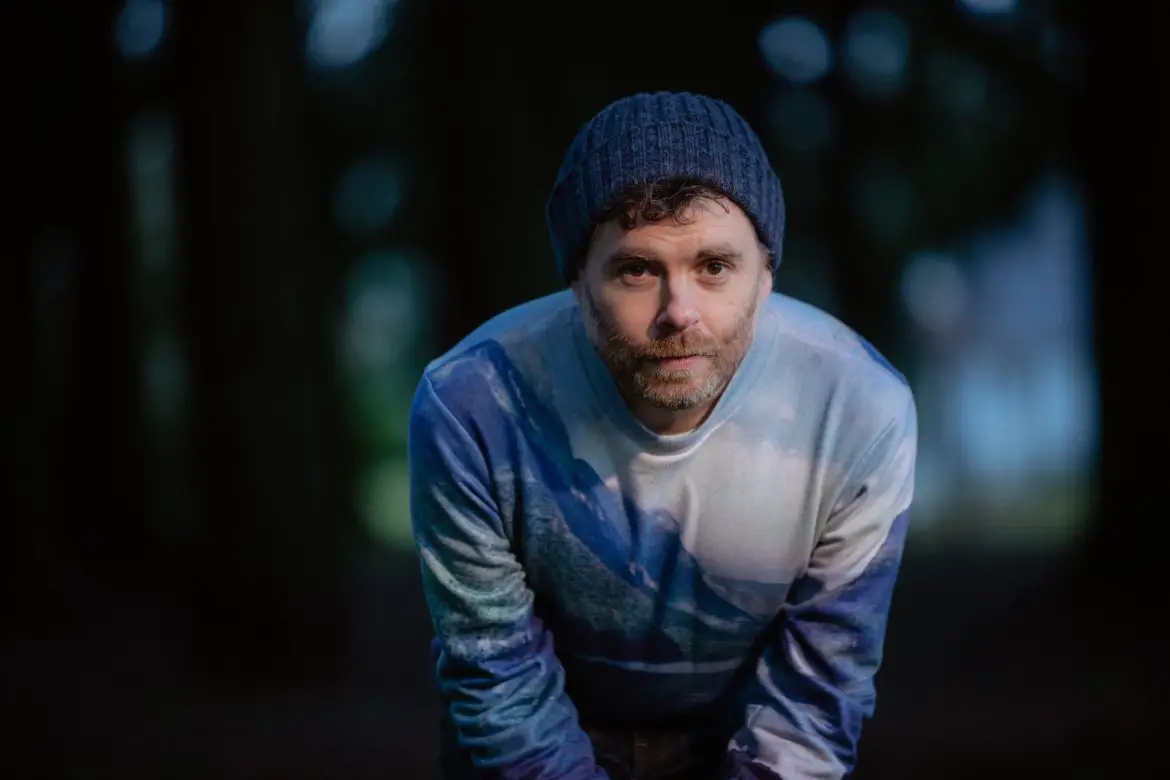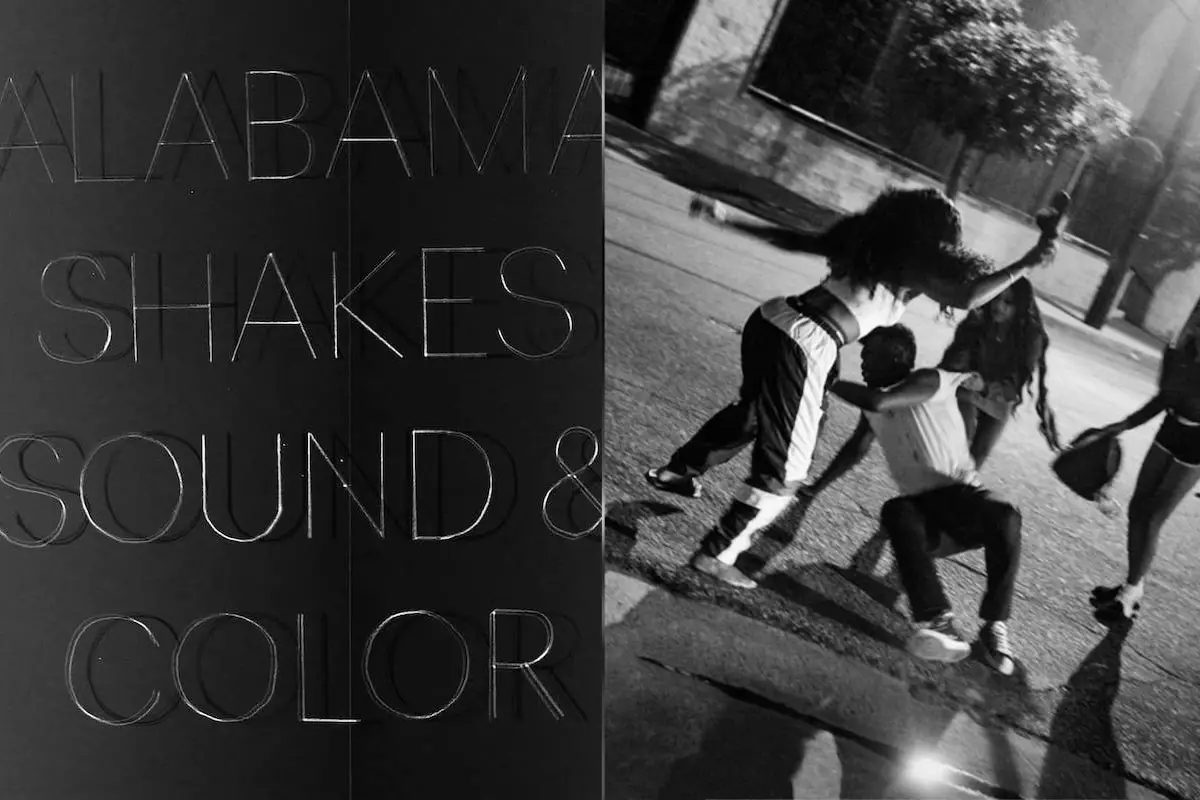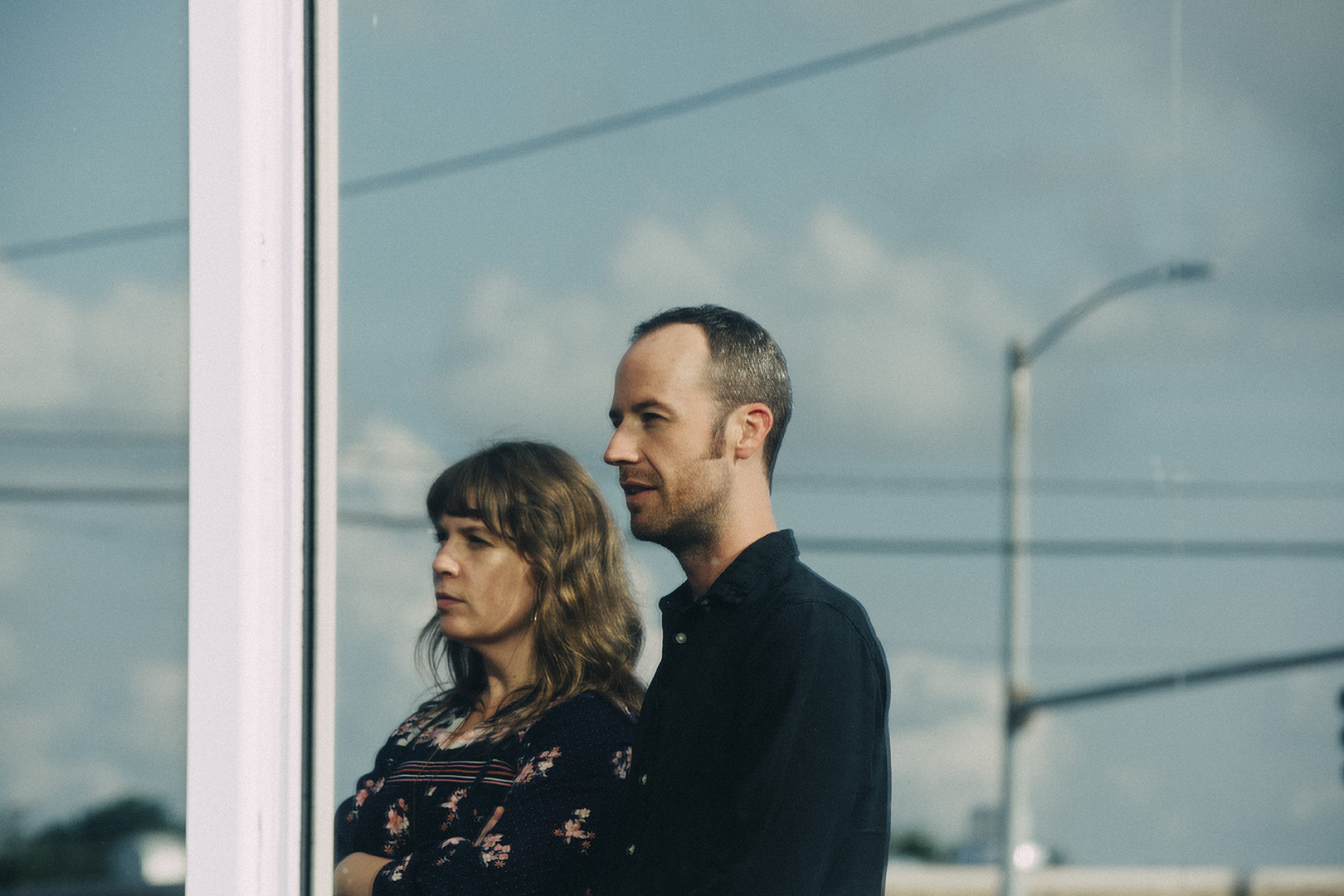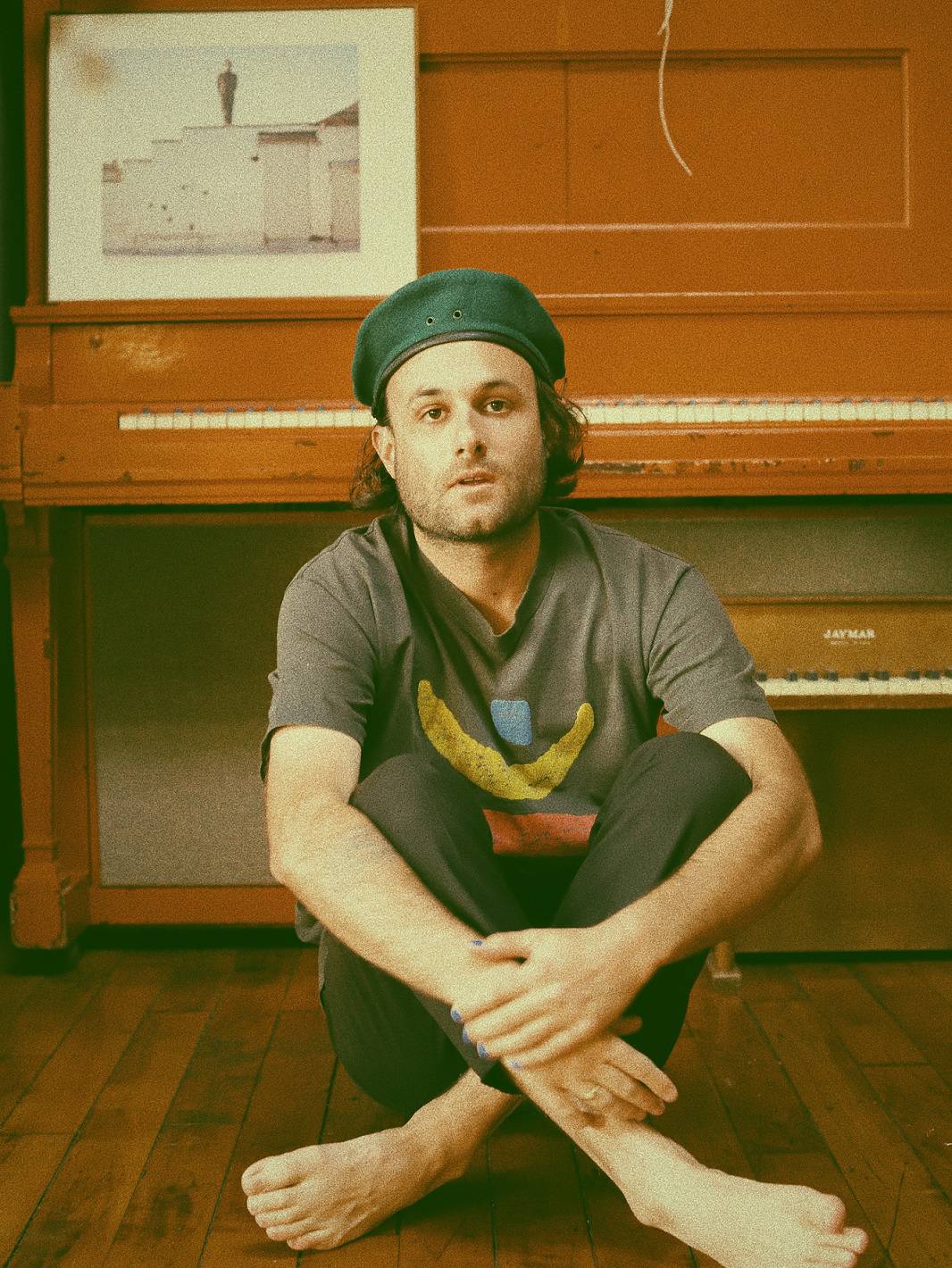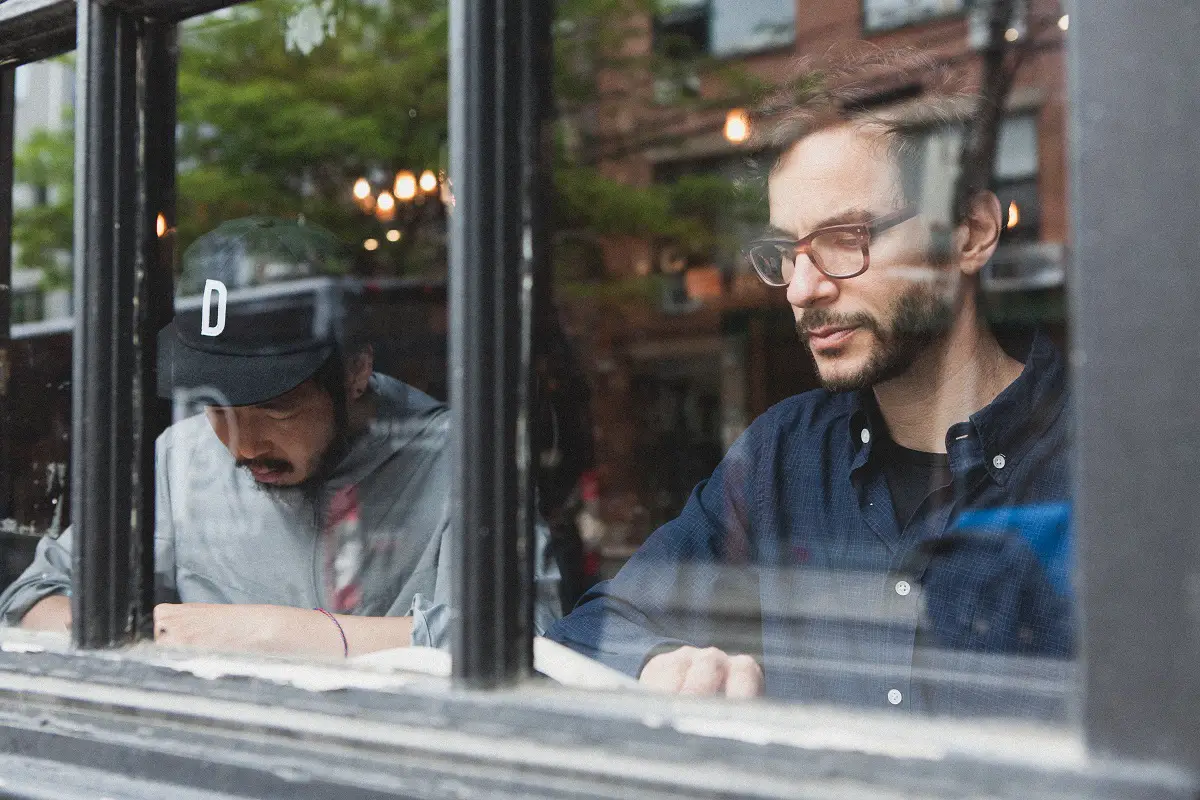Gabriel Kahane’s newest record ‘Magnificent Bird’ is a beautiful, insular universe, written and recorded in the last month of a year-long break from most of the internet.
Stream: ‘Magnificent Bird’ – Gabriel Kahane
In 2016, Gabriel Kahane spent two weeks on an Amtrak train without a cell phone.
In an observation car somewhere in the middle of America, he thought to himself, “I should definitely take more than 13 days off the internet at some point.” Three years later, in November of 2019, it was the right time to take a year off. When the pandemic began four months into the experiment, Kahane considered giving up amidst a forced cross-country move and obvious global terror. But something told him to continue, and what began as a project that was intended to force Kahane into conversations with strangers morphed into one that forced him into conversations with himself.
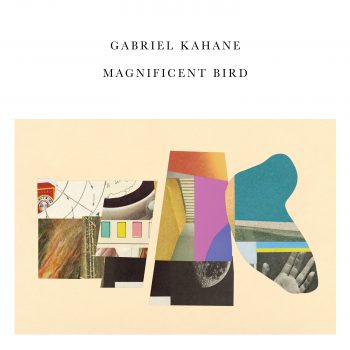
Magnificent Bird (out March 28, 2022 via Nonesuch) is the first album since 2011’s Where Are the Arms that really addresses Kahane’s own inner life. But instead of a “sad breakup record,” Magnificent Bird is driven by observation and reflection. Over the span of ten songs, Kahane people-watches from his porch, revels in rainfall after the devastating Oregon wildfires, makes coffee, ponders professional jealousy, and attends his grandmother’s virtual shiva. He turns his keen eye for detail inward, granting Magnificent Bird the same quality that made The Ambassador and Book of Travelers so compelling. It is a solitary record in that way, but is also filled with the voices and instruments of his friends – members of Punch Brothers, Andrew Bird, Caroline Shaw, Nathalie Joachim, and more make appearances on the gorgeously arranged songs.
Kahane, like his music, is endlessly thoughtful.
Between musings on surveillance capitalism and theories about groupthink, he references poet and essayist Audre Lorde and civil rights historian Barbara Fields. He recommends books and discusses the quiet beauty of grief. He jokes about talking too much about politics. He is loquacious and perceptive, self-deprecating and deliberate. Magnificent Bird was written in the last month of Kahane’s self-imposed ban from social media, and it sounds both diligently tended to and like it has just sprung out of someone’s head fully formed.
Made in the last month of Kahane’s digital diet, Magnificent Bird functions as a series of snapshots of his small universe – intricate tableaus of light and breath, newspapers and restless dreams. They are observed from above and within, wrapped carefully in paper, and offered as a gift.
— —
:: stream/purchase Magnificent Bird here ::
A CONVERSATION WITH GABRIEL KAHANE
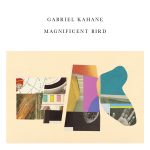
Atwood Magazine: Your last album, Book of Travelers, was a larger narrative about people and spaces. How do you feel that Magnificent Bird relates to your last record and how did the conceptual framework come about?
Gabriel Kahane: First and foremost, it’s a companion piece in the sense that I did my train trip in 2016 without the internet. That was a kind of last minute decision. I had asked my partner, “Should I take my phone?” and she was like, “No, no, no, definitely don’t take your phone.” The depth of the connections I made on the train happened because I had no other way to communicate with people. I have a vivid memory of standing in an observation car somewhere in the middle of the country thinking, “Wow, I should definitely take more than 13 days off the internet at some point.”
But where the train trip was a physical journey, the year off the internet was a more inward journey of personal discovery, and it became all the more inward because of the pandemic. I began my time offline in November of 2019. One of the ideas was that by getting rid of my devices, I was gonna force myself into more interactions with strangers. I could talk for a very long time about the “why” of the internet, but to be succinct, I felt a huge anxiety about surveillance capitalism—though not from the actual surveillance aspect of it. I think most people aren’t actually particularly perturbed by the idea of data companies having their personal information. It’s more about what they do with it, and the way that algorithms drive polarization, disinformation, conspiracy theories, and inequality. I was thinking about the mercilessly amoral behavior of some of these companies, and how there’s a sort of received wisdom among musicians that you don’t have a choice, you have to do social media or it will destroy your career. Something I’ve been thinking about a lot is the Lewis Hyde book, The Gift. Are you familiar?
I’m not, no.
Gabriel Kahane: It’s basically all about gift consciousness and this idea that art lives in two economies: a gift economy and a market economy. But while art can exist without the market, where there is no gift, there is no art. What he’s driving at is that the reciprocity that occurs when art is shared—like I sing a song, your gratitude completes the cycle of gift consciousness and gift economy—that it’s your gratitude, or in some instances, just your physical presence, that nourishes me. And when you start thinking in those terms, it’s a kind of off-ramp from the drive for infinite growth, which drives insecurity and jealousy.
I also had a terrible social media addiction, but I didn’t realize until I was in the middle of my hiatus that it was driven as much by stepping outside of surveillance capitalism as it was more broadly about this ethos of convenience and efficiency and this idea that they both have intrinsic value, which I do not believe they do. I have a friend who was the fifth employee at Yahoo, who has since become a fierce critic of big tech. She says this beautiful thing: “No one on their deathbed ever says, ‘Oh, I’m so glad that such-and-such was convenient.'” That’s just not how we organize our lives.
I actually didn’t realize you started the no-internet experiment prior to the pandemic. Once everything shut down, did you consider scrapping it? What kind of emotions were you having as that unfolded?
Gabriel Kahane: I did think about giving up. And full disclosure, there were certain things that I had to bend the rules for, of course. We were in Portland when everything shut down for what was supposed to be one week. We ended up just moving here, because we were traveling with our very young daughter. My partner is in healthcare and she was like, “We’re not getting on a plane; we don’t know what this is.” So we ended up staying out here. That meant we didn’t really have any of our things, and brick and mortar stores were all shut down. So I basically had to “break the rules” by doing some e-commerce.
But other than that, I stuck with no email or social media. My smartphone was in a drawer in Brooklyn, so that was not an option. I mulled over giving up for maybe a few weeks, but then the phone started ringing. I was still talking to people on the phone—and I was getting all these invitations to do things online. I was really lucky because I had some commissions from a handful of places: an orchestra, a string quartet, a choral group, and I also have this part time gig with the Oregon Symphony, which gave me just enough financial stability to not have to contemplate using the internet as a fallback. I also started to think it might be valuable for there to be the perspective of someone who, during the transition to Zoom and live streaming, wasn’t there.
Ultimately, I decided to stick it out, because one, I felt like it was really good for me to be off the internet. And two, there’s this idea of “tuning the herd,” which is a kind of scary idea that comes from this social scientist at MIT whose ideas I’m really not into. He talks about how social networks can be used to create groupthink, but he’s saying that as a positive thing. I reject that. The longer I was offline, the more I recognized my own participation in and capitulation to a certain kind of groupthink and certain kinds of behaviors that are incentivized and rewarded on social media. So I stuck with it. Also, I’m stubborn [laughs].
I've always seen a lot of your work as inherently political, so I was curious about your engagement with politics while being off of social media.
Gabriel Kahane: When I began the year off the internet, I thought that it was about an interrogation of all of these public facing things: I’m going to understand how insidious surveillance capitalism is and how insidious this ethos of efficiency and convenience is by absenting myself from it. And I’ll also have all these interactions with strangers that I hope will bring me closer to people and closer to this idea that I’m obsessed with from Audre Lorde. She said once in an interview, “When I define myself, the place in which I’m like you, and the place in which I am not like you, I’m not excluding you from the joining; I’m broadening the joining.” What I love so much about that is that it’s an invitation to think about oppression not as a way of creating hierarchies, but as a way of bringing people closer together to acknowledge differences in power, and then to use it as a way of saying, “In spite of that, here’s this thing we we share.” I think it’s also another way of expressing intersectionality. So my really long answer to how [Book of Travelers and Magnificent Bird] are related is, one, I realized how much I was brutally addicted to social media, and two, the pandemic hit four months in and kind of obliterated one of the big animating ideas [of the experiment], and so it became much more monastic and inward looking.
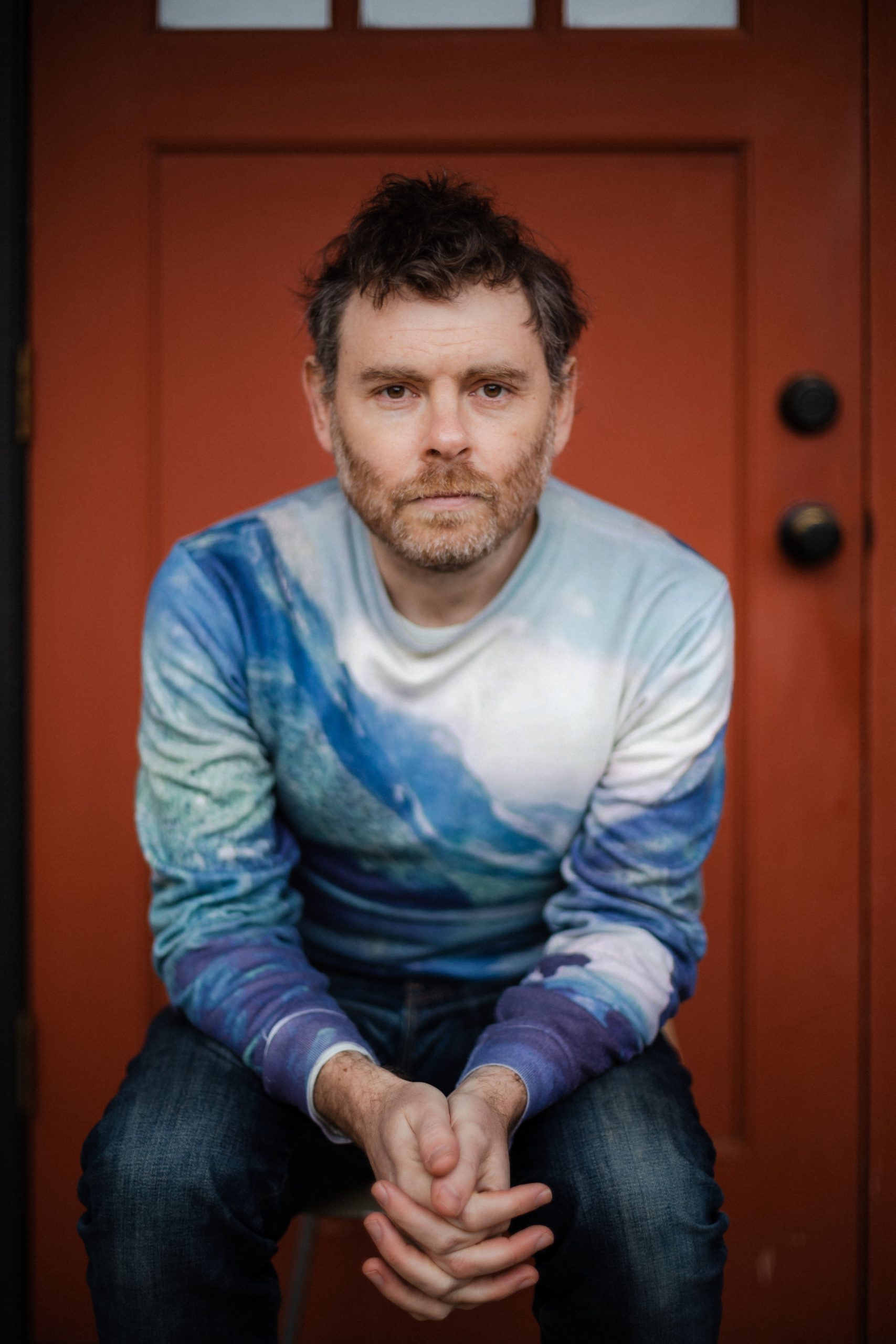
How did that specific intersection of self-imposed digital isolation as well as the externally forced isolation of COVID affect this writing process? What were the challenges and what surprised you?
Gabriel Kahane: Well, all the songs were written in the final month of the year. I knew that something artistic was going to come out of this, but I didn’t realize until after I had written those 30 songs in October, that that’s what I was doing. The first four months of the hiatus, I was running around traveling, then the pandemic hit. For the next three months, my family and I were scrambling, trying to figure out what the fuck was going on. Where are we going to live? Are we gonna have enough work? I spent a lot of the summer working with the Oregon Symphony. Ironically, I created their digital series, but didn’t watch it.
That wrapped up in late August and then I started trying to write in September. But then there were these crazy fires here, and then it was mid September. In my mind, I had been trying to write for longer, but it was really just a few weeks of banging my head against the wall and trying to write these grand epics and failing, and then being like, “You know what, I’m just going to make myself write a song every day. That will give me permission to write small, modest things.” In the end there, I think there are songs that have a kind of sweep to them, but it was a fundamentally different process than anything I’ve done before because I didn’t go into it with any expectations that I was writing a record. It was really an exercise.
I think in a funny way, having made some explicitly ideological or politically tinged work in the past, writing about my family and writing about my own emotional life felt really important to me from the vantage of polarization. We just have such profound deficits of love and empathy and compassion. There’s this quote from Bayard Rustin, one of the most extraordinary figures in the Civil Rights Movement, where he says this thing about how if we want to rid the world of ugliness, we first have to rid it in ourselves. I guess I’m at this place where I actually think that trying to open someone’s heart is radical, in that I think it’s the first step to…I don’t even think it’s about change. The outlook of changing someone’s mind feels wrong to me. I feel like what we actually have to do is be able to see ourselves in each other, and once we can see ourselves in each other, then we realize that it’s capital and the powerful who are the enemy, not each other. So, writing about myself, which I really hadn’t done since my second record, felt different. And doing free-writes changed the thought patterns of the songs in ways that I find really interesting and pretty different from songs that I’ve written in the past.
I’ve always been really fascinated in your use of mundanity to communicate larger ideas, and in some ways it reminds me of David Sedaris’ essays and how he journals everything to keep details fresh. Do you journal? Do you have sources that you pull from as you’re working on music?
In this instance, again, this is unique to this album. I had this notebook that I had been writing in for the whole year. I would go through months where I would write every day and then other times I wouldn’t write at all. For the month of October 2020, I had this clear mission where I would start with a free-write, which would get to 30 or 45 minutes, or however long it took for there to just be something there. Then I would come out to the studio and type it up. I would print a draft and start trying to find the shape of the lyric, which often meant cutting lots of stuff and rearranging. I would do draft after draft until it felt like there was something that I could set to music, and I think that’s what I did for 28 of the 31 days and the other three days I wrote tiny little instrumental pieces.
So the sense of the mundane was, if I felt like writing about making coffee, I was gonna write about making coffee. Of course, the world was going to intrude on writing about making coffee. That’s what interests me: the juxtaposition of generalized, ambient terror and the mundane, which is how I think most people go about their lives all the time. That’s also something that came up a lot when I was interviewing people for the piece that I wrote about housing issues and homelessness, Emergency Shelter Intake Form, which I wrote for the Oregon Symphony in 2018 when I was volunteering at a shelter. What was so thematically constant in everyone’s experience was the grinding bureaucracy that governs how people work their way through the shelter system. I don’t want to overplay my experience there. But that marriage of fear and the mundane was an unusual thing for me.
I think when you’re going through something traumatic or grieving, what you often remember most is the mundane. I feel like so much of Magnificent Bird contains that idea. The image of the “hot pink raingear
Gabriel Kahahe: I’m always kind of loath to try and analyze my own work. But it’s funny. I do feel like we’re so much in this era of paranoid reading that I can’t help but start to try to justify…I guess I would say this: Audre Lorde has this great, famous essay, “Poetry Is Not a Luxury.” I feel like by extension, there’s this movement right now where it’s sort of implicit that art that doesn’t concern something grave and monumental is somehow a luxury or classist, when I think in fact, it’s the opposite. Like, we all need to be able to revel in the beauty of simple things and to not have everything freighted with ideology. I think that there is this question we asked a lot during the Trump years, just as it was asked in this country in the 30s and 40s, where you did see art become way more ideologically freighted for a moment. I think it does not reflect well on where we’re at that one ends up feeling insecure about just being honest about one’s own experience and wondering, “Is this worthy?” [Laughs] Of course, there’s the question of self-editing and like, does the world need to hear this, and is this navel-gazing or not? Is there something about what I’m trying to convey that’s going to be relatable to someone else?
I've often felt that the smaller the universe of the piece of art, whatever it is, the more universal it becomes.
Gabriel Kahane: Yeah. Whenever I’ve taught songwriting, I’ve often had the experience of seeing young, ambitious people trying to write universally. And of course, I feel like that’s a total dead end. And how a lot of drivel comes into the world. What is so interesting is the negative image of that hyper-specificity that you get from people. The first two musicians who came into my mind were Kendrick Lamar and Joni Mitchell, who both write so exquisitely about the incredibly personal. Obviously, Kendrick Lamar also has this way of making the camera pan out and suddenly he’s writing about the whole world—it’s what makes him such a genius. With Joni Mitchell, it’s often much more rooted in psychology. And someone like Fiona Apple is kind of incapable of writing about anything other than herself, but she’s so psychologically astute that you’re just like, “Oh my God, tell me more” [laughs].
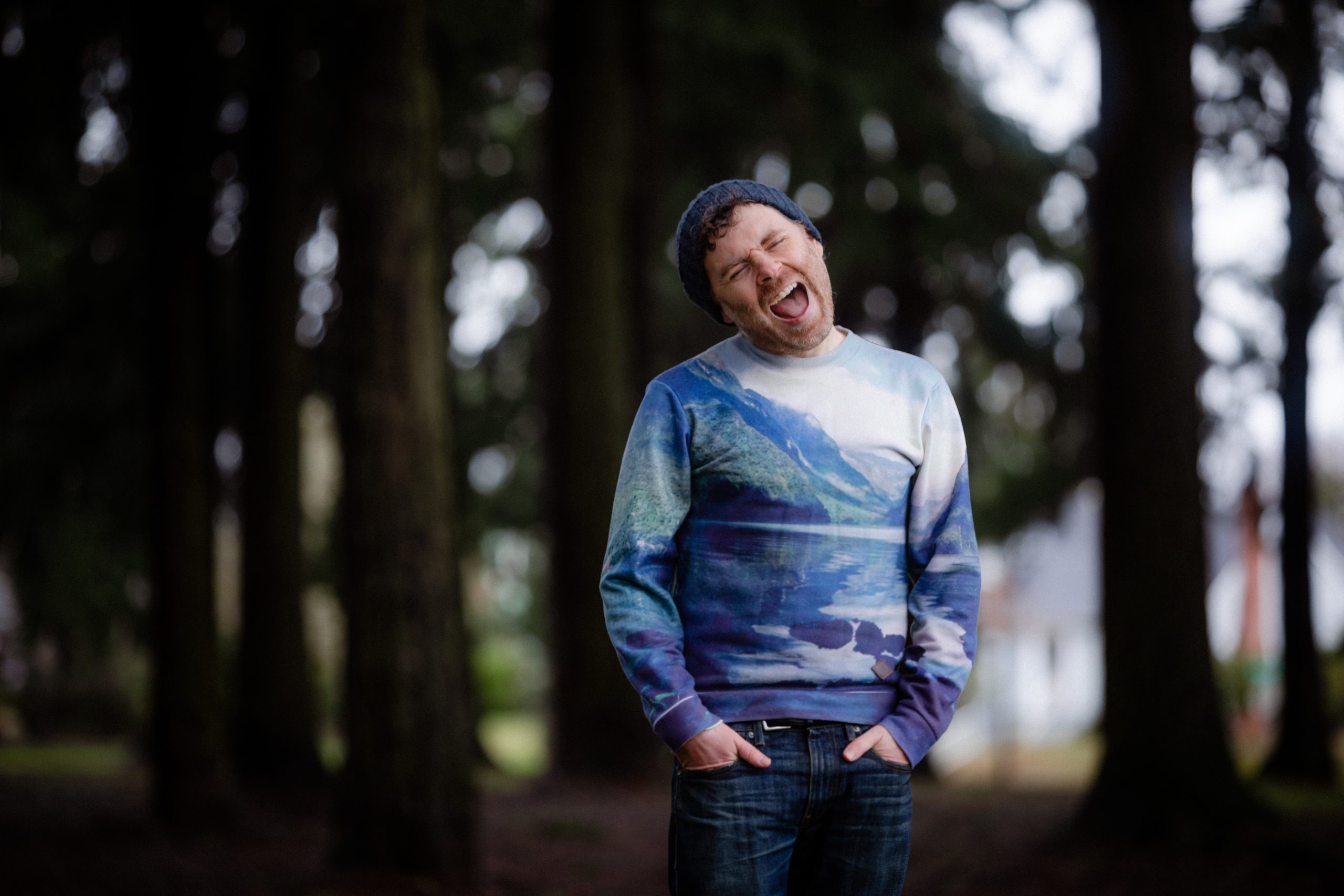
You write so much about other people and their stories. Did you find it difficult to turn inward while you were writing these songs?
Gabriel Kahane: Yeah, I think that the extent to which the lyric permeates the skeleton happens to varying degrees in varying songs. It actually made me realize that I would like to probe deeper. I think the title track is a brutally self-examining song and one that at first, I was like, I don’t know if this one’s gonna go on the record. Then I was talking to the former head of Nonesuch, Bob Hurwitz. He said, “You have to put that song on the record. It’s so uncomfortable and that experience of professional jealousy is so common.”
For me, the point of that song comes back to that last stanza of putting the record on and singing along. That’s a lyric that I’m proud of, because it’s really unflattering, but there’s also salvation in it. In a song like that, it definitely goes all the way in. But then the song “Linda and Stuart,” even though on the surface, it’s not about me, it actually is totally about my grief over leaving New York. I will say that I think at baseline, it’s easier for me to write about other people than it is for me to write about myself.
So speaking of psychoanalysis in songs, do dreams play a significant role in this record outside of “Die Traumdeutung” (the German title of Freud’s book The Dream Interpretation)?
Gabriel Kahane: I mean, I feel like that’s for you to decide.
That's fair!
Gabriel Kahane: I don’t say that out of trying to speed things along. That’s one of the things that I find sort of vexing about doing interviews, even though they’re necessary. Unless you’re, you know, Sufjan, and you can do one interview and that’s it [laughs]. It’s not that I want the work to speak for itself. It’s that I don’t want to deprive listeners of making their own discoveries and also creating their own meaning. Part of the point of ambiguity is to leave room for someone to make their own meaning. What you asked is such a rich question, but it’s one that I feel like would be really diminishing for me to answer.
The final song, “Sit Shiva,” resonates with me so much. It reminded me of my own grandma’s shiva. Also, is that the same grandmother you reference on Book of Travelers?
Gabriel Kahane: Nope. Two records, two grandmas. The thing is, I was closer to the grandmother from Book of Travelers, so I think in a weird way, part of what made me able to be an observer in “Sit Shiva” was the little bit of distance I had from grief. But I was feeling my mom’s grief really intensely. I was just so astonished at her bravery to be on video. I mean, it’s also totally up her street, because we come from a family of very everything’s-on-the-table kind of Jews, you know [laughs]. From a songwriting craft perspective, that might be my favorite song on the record. I think part of the reason that the record is as short as it is, even though I wrote 20 other songs, is that I really want them to be listened to in this sequence and end [with this song].
It feels like, not only have we all experienced loss in this time, but we’ve all experienced it in ways that have been really demeaning to grief. For those of us who’ve experienced losses that feel similar to this one, but didn’t occur during COVID, you know, death is a part of life. I don’t want to editorialize, but I think the record is about so many different kinds of grief and loss. But couched in the first song is a possibility. That lyric “we are the saints” comes from the epigraph of Jennie Offill’s book, Weather. The epigraph of that book is a resolution from a Quaker Meeting in Connecticut in the 16th or 17th century, that says, “…voted that the earth is the Lord’s and the fullness thereof; voted that the earth is given to the saints; voted that we are the saints.” It’s a novel about climate change and what I love in that [quote] is both the responsibility that is conferred by that notion, but also somehow a generosity of spirit.
My hope is that there’s a kind of openness and generosity of spirit contained in track one that carries over, even when things get kind of snarky and dicey. Then you get to the love song that’s compressed into the final verse of “Sit Shiva,” which for me lives in that liminal space between ecstasy and grief.
To you, is it a song about death or a song about connection?
Gabriel Kahane: I don’t think of songs as being about anything. It’s not how I get into a song. I’m never like, I’m gonna write a song about X, or I’m gonna write a song about Y. It’s more that I’m driven by observation that ideally contains within it both humor and tragedy. My favorite playwright is probably Chekhov, because you never know if you’re supposed to laugh or cry.
The art that I love best in general is not where they hand you the punch line on a platter, but where you’re both cringe laughing and maybe crying. That kind of emotional ambiguity is the governing principle throughout this record. I think almost all the songs have a certain degree of emotional ambiguity, or stuff that could be read as gallows humor, and there’s obviously also a lot of sadness. But I wouldn’t know how to write a song about death. Nor would I know how to write a song about connection. I write the song and then you decide what it’s about.
— —
— — — —

Connect to Gabriel Kahane on
Facebook, Twitter, Instagram
Discover new music on Atwood Magazine
? © Jason Quigley

